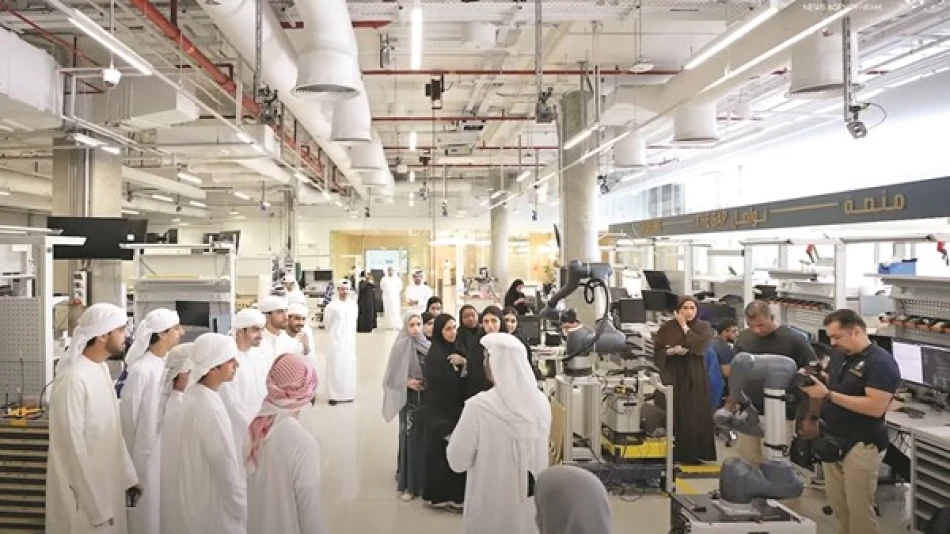
Shaping Future Paths: Fallen Heroes' Children Graduate High School
UAE Launches Career Development Initiative for Martyrs' Children, Emphasizing AI and Innovation Skills
The UAE has concluded its "Future Journey" initiative, a comprehensive career development program targeting high school graduates from martyrs' families. The program, which combined visits to cutting-edge institutions in Abu Dhabi and Dubai, reflects the Emirates' broader strategy to cultivate homegrown talent while honoring the families of those who sacrificed for the nation.
Strategic Focus on Next-Generation Technologies
The initiative's final day featured field visits to Dubai's Museum of the Future, the Dubai Future Foundation, and the Mohammed bin Rashid Centre for Government Innovation. These institutions represent the UAE's commitment to positioning itself as a global hub for artificial intelligence and emerging technologies.
Students gained hands-on exposure to AI applications across workplace and academic environments, alongside training in management, leadership skills, and government innovation frameworks. The program also emphasized discipline and confidence-building—qualities essential for navigating the rapidly evolving job market.
National Heritage Meets Future Vision
The program balanced technological exposure with cultural grounding through visits to the Wahat Al Karama memorial and the Sheikh Zayed Grand Mosque Centre in Abu Dhabi. This combination signals the UAE's approach to development: advancing technologically while maintaining strong cultural and national identity.
Why This Matters for the UAE's Economic Future
The initiative represents more than social responsibility—it's a strategic investment in human capital. By targeting martyrs' children, the UAE addresses two critical objectives: honoring national sacrifice while developing skilled professionals for its knowledge economy transformation.
The focus on AI and innovation skills aligns with the UAE's National Strategy for Artificial Intelligence 2031, which aims to make the country a global leader in AI adoption across government services, healthcare, and smart cities. Training young Emiratis in these technologies reduces dependence on foreign expertise while building domestic capacity.
Regional Leadership in Talent Development
This approach mirrors successful models in Singapore and South Korea, where governments invested heavily in citizen skill development during economic transitions. The UAE's emphasis on combining technical training with leadership development suggests recognition that future competitiveness depends on both technological proficiency and human capital quality.
The program's integration of government innovation centers also reflects the UAE's unique model where public and private sectors collaborate closely on technological advancement—a structure that has proven effective in areas like fintech regulation and smart city development.
Implications for Regional Development
The initiative's success could influence similar programs across the Gulf region, where governments increasingly recognize that oil-dependent economies require skilled workforces to diversify successfully. By demonstrating tangible career pathways in emerging technologies, the UAE may accelerate regional adoption of similar talent development strategies.
For the participating students, exposure to institutions like the Dubai Future Foundation provides networking opportunities and career insights that traditional education rarely offers. This practical approach to career development may prove more effective than conventional academic pathways in preparing young professionals for the evolving economy.
Most Viewed News

 Layla Al Mansoori
Layla Al Mansoori






